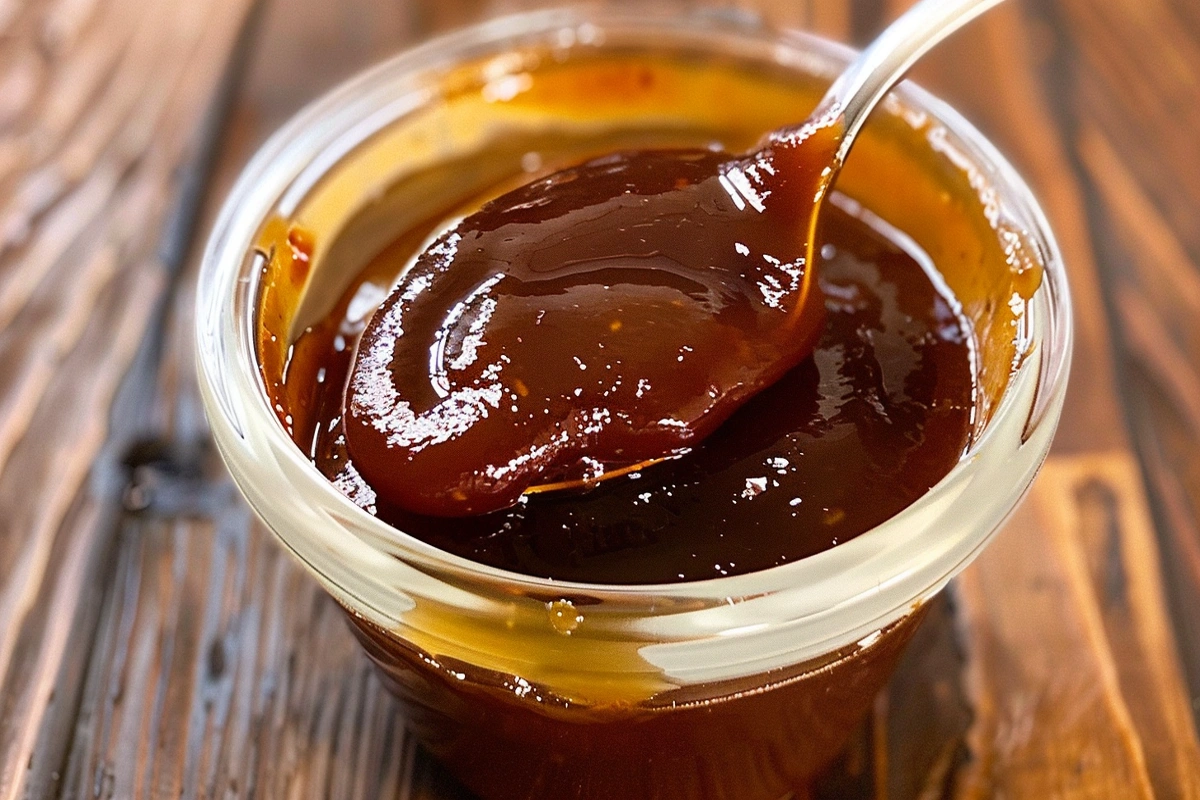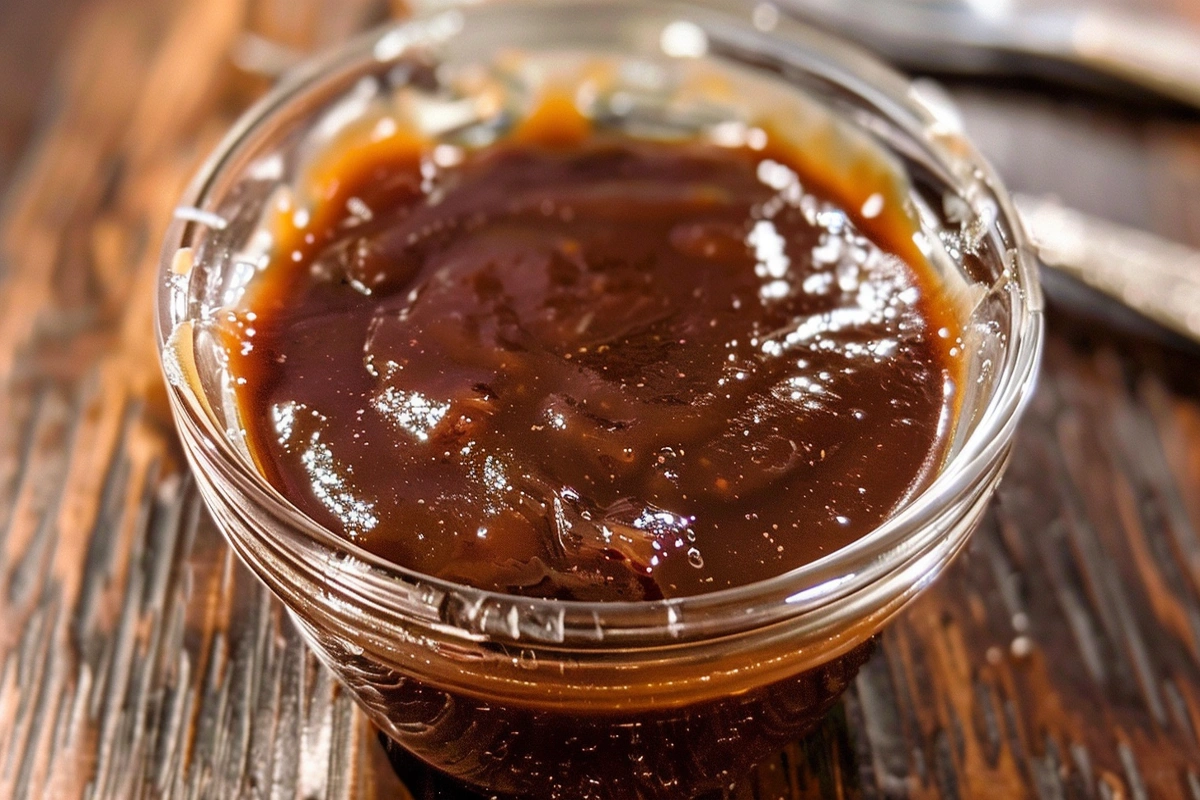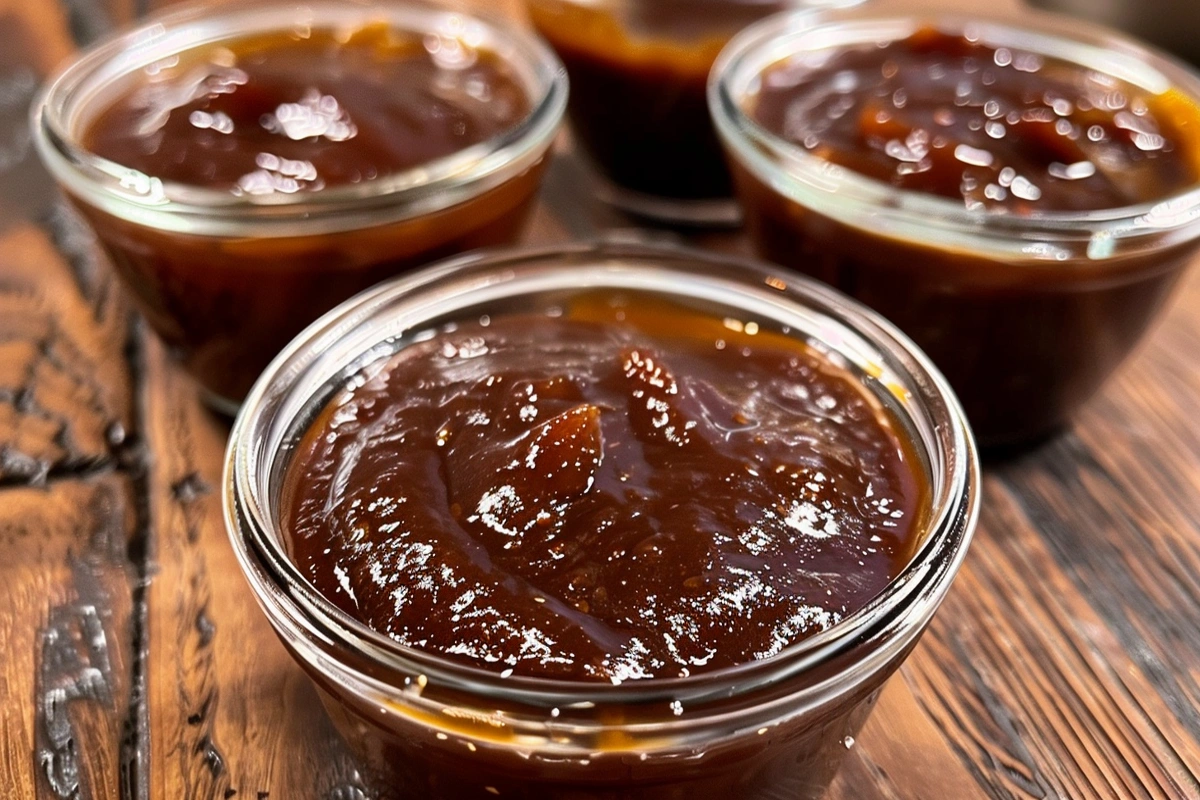Introduction to What Is Original BBQ Sauce Made Of
Barbecue sauce is a must-have in many households, bringing a burst of flavor to grilled and smoked meats, roasted vegetables, and even as a dipping sauce for appetizers. Its unique combination of sweet, tangy, and smoky flavors has been refined and celebrated for centuries, with recipes passed down through generations. From sticky, molasses-heavy sauces to thin, vinegar-based concoctions, barbecue sauce has evolved into a complex and versatile condiment. Let’s see What The Original BBQ Sauce is Made Of.
Each variation reflects the rich cultural history and culinary preferences of the region it hails from. While you may think of barbecue sauce as simply a topping, in truth, it is a culinary art form that has a unique ability to balance flavors, add depth, and enhance the overall eating experience. Whether slathered on ribs in Memphis or basted on pulled pork in the Carolinas, every bottle and homemade batch tells a story of tradition, experimentation, and passion for good food.
From the deeply caramelized and sweet sauces of Kansas City to the sharp, tangy mustard-based sauces of South Carolina, each region in the United States boasts its own unique take on BBQ sauce, making it an integral part of its barbecue identity. However, it all started with the original BBQ sauce—a concoction whose core ingredients have stood the test of time and remain the foundation for most modern recipes. But what exactly is the original BBQ sauce made of? To truly appreciate this versatile condiment, it’s essential to understand its core components and how they contribute to its unmistakable taste and texture. This guide will take you through the essential ingredients, explore the intriguing history behind BBQ sauce, and offer practical tips on how to tweak it to suit your culinary preferences. Whether you’re a beginner cook looking to try your hand at making your own sauce or a seasoned BBQ enthusiast aiming to elevate your homemade recipes, let’s dive into the rich and flavorful world of authentic BBQ sauce.
The History of BBQ Sauce: Where It All Began
The origins of BBQ sauce date back to the early American colonial times, when European settlers combined their traditional meat preservation techniques with the cooking styles of Native Americans. Early sauces were simple mixtures of vinegar, salt, and pepper, designed to preserve meat and enhance its flavor during the slow-cooking process.
From Europe and Africa to the American South
The Southern United States, where barbecue traditions took root, was a melting pot of different cultures. European settlers brought vinegar-based and mustard-based sauces, while African slaves contributed various spices and smoking techniques. This fusion created the diverse array of BBQ sauces we know today.
Evolution of BBQ Sauce Ingredients
The original BBQ sauces were more tangy and spicy, relying heavily on vinegar and black pepper. As trade expanded, new ingredients like tomatoes, sugar, and molasses became readily available. This marked the transition to the sweeter, thicker sauces we see today, such as the Kansas City and Memphis-style sauces.
What Makes Up an Original BBQ Sauce?

Although BBQ sauces come in many varieties, they all start with a few core components:
- Tomato Base: The base of most BBQ sauces is made from ketchup, tomato paste, or tomato sauce. Each one adds a different level of sweetness and texture.
- Vinegar: Adds a tangy bite that balances the sweetness. Options include apple cider vinegar, white vinegar, or even red wine vinegar.
- Sweeteners: Essential for creating that signature BBQ glaze. Choices range from brown sugar to honey and molasses.
- Spices and Seasonings: This is where you get creative! Common choices are mustard, paprika, chili powder, garlic, and onion powder.
- Liquid Smoke: Optional, but it gives your sauce that authentic smoky BBQ flavor.
Why Each Ingredient Matters
Each ingredient in BBQ sauce serves a specific role:
- Tomato Base: Provides sweetness and thickness.
- Vinegar: Balances out the flavors with acidity.
- Sweeteners: Helps caramelize the meat and adds depth.
- Spices: Enhance the overall taste profile.
- Liquid Smoke: Mimics the flavors of wood-smoked barbecue.
The Science Behind BBQ Sauce Flavors
The interaction of acids (like vinegar) and sweeteners (like sugar or honey) is what gives BBQ sauce its characteristic balance. Here’s how these elements work:
- Acids: Cut through the richness of meats, providing a sharp contrast that keeps the flavor from becoming overwhelming.
- Sweeteners: Smooth out the tanginess, making the sauce more palatable and helping it cling to the meat during grilling.
- Spices and Herbs: Layer on different flavors, from the earthiness of cumin to the heat of cayenne pepper.
Understanding Different Sweeteners and Their Impact
- Brown Sugar: Adds a deeper sweetness and helps the sauce thicken.
- Molasses: Darker, richer, and slightly bitter, perfect for beef BBQ.
- Honey: Lighter, floral sweetness that works well with chicken and fish.
Choosing the Right Vinegar for Your Sauce
- Apple Cider Vinegar: Adds a mild, fruity tang.
- White Vinegar: Sharp and clean, great for brightening flavors.
- Balsamic Vinegar: Sweet and complex, ideal for gourmet sauces.
Regional BBQ Sauce Styles: A Breakdown
1. Kansas City Style
- Flavor Profile: Sweet, thick, and tangy.
- Ingredients: Ketchup, brown sugar, molasses, and vinegar.
- Best For: Ribs, chicken, and pulled pork.
- Pro Tip: Kansas City sauce is thick and sticky, making it perfect for glazing meats during the last 10 minutes of cooking.
2. Memphis Style
- Flavor Profile: Sweet and spicy with a thinner consistency.
- Ingredients: Tomato base, vinegar, and dry spices.
- Best For: Pork ribs and pulled pork.
- Pro Tip: Memphis sauce is often served as a dip rather than a glaze, allowing the smoked meat flavor to shine through.
3. Carolina Style
- Flavor Profile: Tangy, vinegar-based with a hint of sweetness.
- Ingredients: Apple cider vinegar, mustard, and spices.
- Best For: Pork shoulder and pulled pork.
- Pro Tip: Use as a mopping sauce throughout the cooking process to keep the meat moist.
4. Texas Style
- Flavor Profile: Bold and spicy.
- Ingredients: Tomato base, black pepper, and cumin.
- Best For: Brisket and beef ribs.
- Pro Tip: Texas-style sauce skips the sweetness and focuses on the bold, natural flavors of beef.
Customizing BBQ Sauce for Different Meats
For Chicken:
Chicken pairs well with sweeter, lighter sauces. Try adding a bit of orange juice or pineapple juice to brighten the flavor.
For Pork:
Opt for a vinegar-heavy sauce to cut through the fattiness of pork. Carolina-style sauces are perfect for this.
For Beef:
Beef stands up well to bold, spicy flavors. Consider adding smoked paprika or chipotle powder for a smoky kick.
For Seafood:
Go for a tangy, citrus-based sauce. Lemon juice and garlic are excellent additions.
Healthier BBQ Sauce Variations
Low-Sugar BBQ Sauce
- Replace brown sugar with a sugar substitute like monk fruit or Stevia.
- Use tomato paste instead of ketchup to reduce added sugars.
Low-Sodium BBQ Sauce
- Skip Worcestershire sauce and add a splash of vinegar and mustard for flavor.
- Use fresh herbs like thyme and rosemary for seasoning instead of salt.
Vegan BBQ Sauce
- Swap Worcestershire sauce (which often contains anchovies) with tamari or soy sauce.
Creative Ways to Use BBQ Sauce
BBQ sauce isn’t just for slathering on ribs. Here are some other delicious uses:
- Marinade: Thin the sauce with vinegar or citrus juice and use it as a marinade for chicken or pork.
- Sandwich Spread: Mix with mayonnaise for a tangy sandwich spread.
- Pizza Sauce: Swap out traditional tomato sauce for BBQ sauce on pizza. Try it with grilled chicken, red onions, and cilantro.
- Dipping Sauce: Serve as a dip for fries, onion rings, or even roasted veggies.
Tips for Making Your Own BBQ Sauce
Start Simple
Begin with a basic ratio of 1 part ketchup, 1 part vinegar, and 1/2 part sweetener. From there, build your flavors with spices and seasonings.
Simmer Low and Slow
Cooking the sauce over low heat allows the flavors to meld together. This is especially important when using spices like garlic and onion powder, which can become harsh if overcooked.
Adjust Consistency
If the sauce is too thick, thin it out with water or vinegar. If it’s too thin, simmer it longer to reduce.
Common Mistakes to Avoid
- Over-Sweetening: Too much sugar can overwhelm the sauce. Balance it out with more vinegar or citrus juice.
- Skipping the Simmer: Raw sauces lack depth. Always simmer for at least 15-20 minutes.
- Not Tasting as You Go: BBQ sauce flavors intensify as they cook. Taste and adjust throughout the process.
What are the basic ingredients in BBQ sauce?
BBQ sauce typically starts with a tomato base like ketchup or tomato paste, combined with vinegar, sweeteners (such as brown sugar, molasses, or honey), and a variety of spices and seasonings. Depending on the style, it may also include ingredients like mustard, Worcestershire sauce, or liquid smoke.
Can I make BBQ sauce without ketchup?
Yes, you can substitute ketchup with tomato paste, tomato sauce, or even crushed tomatoes. Using tomato paste will result in a thicker consistency, while tomato sauce offers a lighter, thinner base. Adjust the seasonings to account for the reduced sweetness found in ketchup.
What makes a BBQ sauce “original”?
An “original” BBQ sauce typically refers to a well-balanced sauce that combines sweetness, tanginess, and smokiness. It’s often a straightforward recipe using core ingredients without overwhelming heat or exotic spices, designed to enhance the flavor of the meat rather than mask it.
How long does homemade BBQ sauce last?
When stored properly in a sealed container in the refrigerator, homemade BBQ sauce can last up to 2 weeks. If you want to extend its shelf life, you can freeze it for up to 3 months. Just thaw in the refrigerator before using.
Can I use BBQ sauce as a marinade?
Yes, BBQ sauce works well as a marinade. However, due to its thickness and sweetness, it’s best to thin it out with some vinegar or citrus juice. This helps prevent the sugars from burning too quickly during grilling and allows the flavors to penetrate the meat more effectively.
Is BBQ sauce gluten-free?
Not all BBQ sauces are gluten-free. Some contain wheat-based ingredients, especially in Worcestershire sauce or soy sauce. If you need a gluten-free option, make sure to read the labels carefully or opt for a homemade version using gluten-free alternatives like tamari.
Can I make BBQ sauce without sugar?
Yes, you can create a sugar-free BBQ sauce by substituting sugar with natural sweeteners like Stevia, monk fruit, or even unsweetened apple sauce. Be sure to balance the sweetness with enough acidity to maintain that signature tangy flavor.
Final Thoughts

Creating the perfect BBQ sauce is an art that requires balancing sweetness, tanginess, and spice. By understanding the core ingredients and regional variations, you can experiment with different flavors and find the perfect sauce for your cooking style. Whether you’re brushing it onto ribs, using it as a dip, or slathering it on a sandwich, a well-crafted BBQ sauce can transform any meal.
Now it’s time to get creative and start experimenting. Who knows—you might just come up with your very own signature BBQ sauce! Enjoy grilling!

